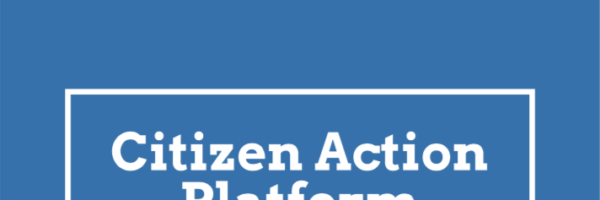The Citizen Action Platform (CAP) is a program designed to improve public services in developing countries by encouraging citizen participation in reporting corruption, mismanagement and maltreatment through the use of information and communications technology (ICT).
In many developing countries, government service delivery is often compromised by the absence of accountability and oversight, creating a situation rife for corruption. Life-saving medications go missing along the distribution chain, money designated for local development projects are pocketed, and students pay bribes for enrollment, promotion and graduation. Over the last 15 years, PTF has supported more than 250 projects in 53 countries where CSOs have acted as catalysts to greater citizen engagement and improved governance. Citizen leaders implementing these projects have relied on face-to-face contact and labor-intensive tools like citizen report cards, social audits, and right to information requests to promote good governance and reliable service delivery. These approaches are highly effectively at the grassroots, but expensive, unsustainable and difficult to scale.
CAP is a program designed to improve public services in developing countries by encouraging citizen participation in reporting corruption, mismanagement and maltreatment through the use of information and communications technology (ICT). It revolutionizes the high-value, but historically high-cost of citizen reporting and monitoring of public services by systematically recording, aggregating, mapping and tracking grievances through their resolution. This information provides strong support for CSOs to constructively engage with service providers through a better understanding of where, when, and what issues citizens are most concerned about. As most community-based organizations have modest resources, program CAP partners with existing ICT applications to overcome the limitations of development and maintenance costs. The Anti Corruption Coalition Uganda (ACCU) and its local affiliate The Apac Anti Corruption Coalition have partnered with UNICEFand Transparency International- Uganda (TI-U) to field test the CAP program on public health service delivery in the Apac district of Uganda. Citizen grievances concerning health service delivery in the district are collected through: 1) SMS to UNICEF’s “Ureport” program; 2) calls to TI-U’s local toll-free hotline; 3) calls made to monthly radio talk-shows; 4) reports made to trained volunteer monitors; or 5) statements made during public meetings. These methods are supported by continuous awareness raising campaigns, such as, radio jingles, public performances and printed materials. All citizen reports are entered into the CAP’s ICT system by a central administrator and subsequently categorized, tracked, and mapped. The information produced helps CSOs more efficiently serve the community through tools like: geo-mapping complaints to help identify “hotspots” in need of attention; resolution time tracking to identify bottlenecks and ensure follow through; and categorization to help identify the appropriate authority to engage. These activities have been heavily supplemented by groundwork to engage with local authorities in resolving complaints. This has principally been accomplished through community meetings, dialogue with service providers, and coordinated local/national level advocacy.
CAP has proven to be highly effective in identifying and resolving issues concerning the quality of public health services. A survey on the program found that that 93% of citizens have a better understanding of their right to health services, 62% feel government response to their problems has improved, and 62% have experienced improved health service delivery overall. These results indicate that our successes are not limited to a few fleeting instances, but real, sustainable change for the future. This kind of change is due to a transformation in the local community, which has demonstrated greater empowerment and participation in encouraging government transparency and accountability. Specific elements of this change are outlined below.
- Public awareness on health rights increased dramatically. A major component of the CAP program was awareness raising. Radio jingles informing citizens of their duty to report poor service delivery and fight corruption, and introducing the CAP program, were played 5 times a day, everyday (click here to listen). Dramatic performances demonstrated the impact of corruption on health service delivery. Citizens participated in direct dialogue with district health officials through monthly radio shows and community meetings. By January 2016, 93% of those interviewed said they had a clearer understanding of these rights through the program.
- The relationship between citizens, health workers and government authorities improved significantly. The program provides a mechanism for citizens, through the local CSO, to better articulate the community’s grievances with public health care. The data produced by the CAP’s technology presents the CSO with concrete evidence. This information was particularly helpful, for instance, when TAACC prepared and presented an argument for greater health service funding at the regional budget workshop.
- The communication between local and national level government authorities has improved. When issues reported through CAP required the attention of national level authorities, or were ignored by local officials, ACCU held strategic meetings with the Health Sector Anti-Corruption Working Group, a consortium of CSOs and the Ministry of Health, National Medical Stores, National Drug Authority, and other government authorities. The improved communication has also established an extra layer of accountability.
- Government authorities and health works have become more informed and vigilant. In fact, many of the complaints that came through the system were from health workers who were discouraged with the system, but felt they had no where to turn. Health Unit Management Committees (HUMCs) are charged with monitoring the general administration of village health centers on behalf of the government, but were practically non-functional in the target district, because health officials all but ignored their existence. Now, because of public pressure, district officials present reports of poor conduct to the HCMC as they’re supposed to. As a result, disciplinary committees are starting to function, addressing issues like, staff absenteeism, late coming, drug stock outs and corruption.


